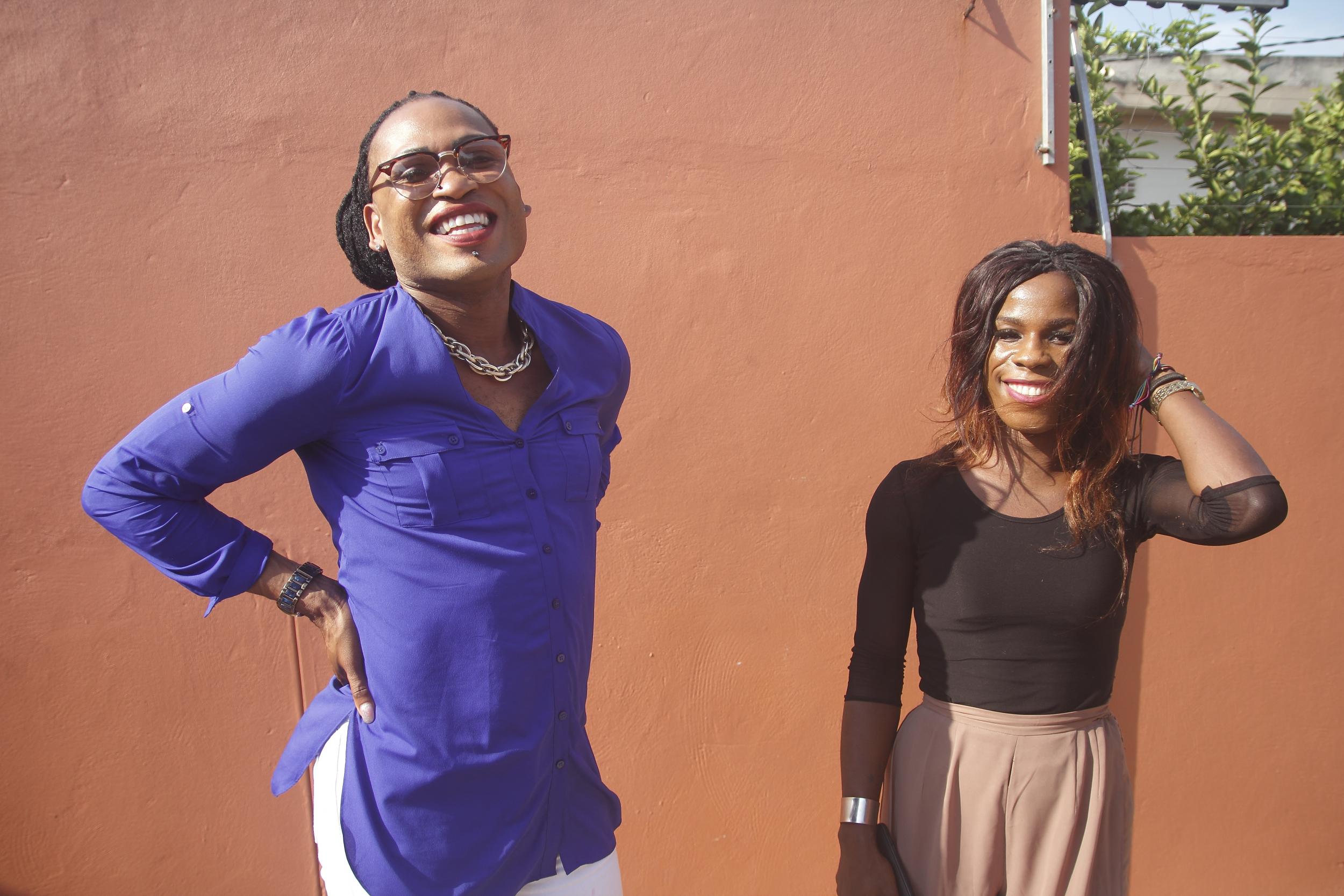AIDSfree: Mozambique’s drag queen battling stigma to encourage HIV testing
Country only decriminalised homosexuality in 2015, and La Biba & La Santa's work has been groundbreaking

Your support helps us to tell the story
From reproductive rights to climate change to Big Tech, The Independent is on the ground when the story is developing. Whether it's investigating the financials of Elon Musk's pro-Trump PAC or producing our latest documentary, 'The A Word', which shines a light on the American women fighting for reproductive rights, we know how important it is to parse out the facts from the messaging.
At such a critical moment in US history, we need reporters on the ground. Your donation allows us to keep sending journalists to speak to both sides of the story.
The Independent is trusted by Americans across the entire political spectrum. And unlike many other quality news outlets, we choose not to lock Americans out of our reporting and analysis with paywalls. We believe quality journalism should be available to everyone, paid for by those who can afford it.
Your support makes all the difference.It was a performance the likes of which the people of Mozambique had never seen before. There on their televisions, in a programme on the country’s most popular commercial channel, were two drag queens singing some of the most popular numbers of the day.
For Mozambique, a country that only decriminalised homosexuality in 2015 and remains deeply conservative in its social attitudes, it was a watershed moment. The performance, which appeared on the country’s equivalent of Britain’s Got Talent, was the first time footage of men dressed as women had ever been shown to such a wide audience.
The result was uproar. Questions were asked by politicians. The pair were labelled by one commentator as “contrary to the acceptable”.
But in the TV studio the judges gave the duo the result that mattered: three straight scores of nine out of 10. They were into the next round.
By the time the pair, called La Biba & La Santa, finally lost out in the semi-finals, they were a national phenomenon. As they returned home after the talent show, they were met by cheering crowds.
“The first song we did was ‘I Will Survive’ and at the end the audience rose to their feet,” La Santa recalls.
“When we were kicked out a load of people were waiting. I could not believe the reaction. They didn’t look at me as trans or homosexual. They looked at me as a singer. For the trans community this had a lot of impact. That is why it has been important for me for it means now, every time I call people on social media about an awareness-raising event, they come.”
For La Santa is also one of the country’s leading anti-discrimination activists in her work for Mozambique’s only LGBT+ organisation, Lambda, largely funded by the Elton John AIDS Foundation to help spread HIV awareness.
Indeed it was at Lambda’s own events where she first began to sing in public.
La Santa, now 36 and one of the country’s few publicly trans figures, runs its network of activists who encourage testing for HIV and is also head of Lambda’s transsexuals association.
Her appearance on the talent show 10 years ago means she is not only known and trusted by the country’s LGBT+ community but has 2.5 million social media followers.
In a country where families can still seek to force children who come out about their sexuality to be straight or risk being disowned, this makes her – and Lambda – an important voice of tolerance.
She so appreciates the support given by The Independent readers to our AIDSfree appeal and says: “People need more information. That is why the fight goes on.
Great lots on offer in our AIDSfree auction
Top tickets to Ascot, a media day at the Ashes and the best seats in the house for Mary Poppins’ West End return are among the lots on offer in our latest charity auction.
Others include the chance to attend the Evening Standard Theatre Awards 2019, and the dream gift for any Pet Shop Boys fan – a landmark remastered signed vinyl set from the duo.
Our auction, which ends at 10pm on Sunday, is powered by award-winning fundraising technology Givergy.
Proceeds go to our AIDSfree appeal, which in conjunction with the Elton John AIDS Foundation aims to get all those with HIV on treatment, and eventually create an Aids-free future.
Money raised from public donations through the AIDSfree appeal will be used to support the Elton John AIDS Foundation projects in six key cities around the world – London, Nairobi, Atlanta, Kiev, Delhi and Maputo.
You can see the full range of lots and the link to bid at www.givergy.com/charity/aidsfree
Join our commenting forum
Join thought-provoking conversations, follow other Independent readers and see their replies
Comments